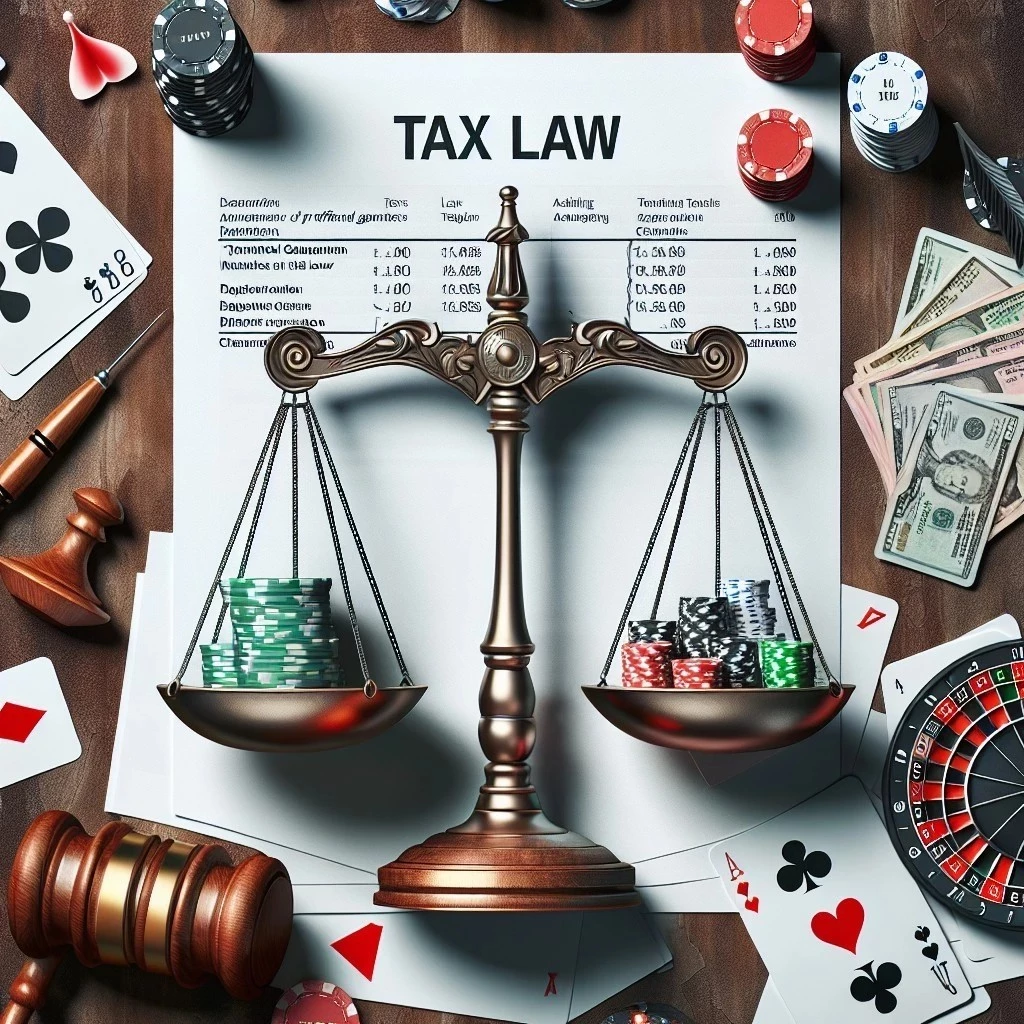Discover how recent tax law changes are impacting professional gamblers and the economy. Explore the intersection of skill, luck, and strategy in this evolving industry.
Impact of Tax Law Changes on Professional Gamblers
Wellcome Offer:
200% up to $2,000
+ 100 Free Spins
The winnings from your free spins will be credited as bonus funds. Exclusively available for new players with fair wagering requirements.
Wellcome Offer:
250% Bonus up to $5,000
+ 100 Free Spins
Claim your bonus and spin your way to big wins! Minimum deposit of $20 required. Wagering requirements apply. Bonus valid for 30 days.
Get up to:
100% up to $1,000
+ 300 Free Spins
You need to deposit at least $25 to be eligible for this bonus. The maximum amount of money you can withdraw from this bonus is limited to $20,000 or 10-times.
Welcome Package:
500% up to $5,000
+ 250% on your 2nd and 3rd deposits
This welcome package rewards new players across their first three deposits. A minimum deposit of $25 applies, with a wagering requirement of 60x before withdrawals.
Wellcome Offer:
250% up to $1,500
+ 100 free spins
Whether you prefer generous deposit bonuses or a bundle of free spins, Cafe Casino’s welcome offer has everything you need to enhance your gaming adventure.
Wellcome Offer:
500% bonus up to $7,500
+ 150 free spins
If you're after big deposit bonuses or a load of free spins, Ducky Luck Casino’s welcome package sets the stage for an exciting gaming adventure.
Welcome Offer:
200% up to $2,000
+ 100 Free Spins
This welcome package combines a deposit match with free spins, giving new players a powerful way to kick off their VoltageBet journey.
Wellcome Offer:
200% up to $1,000
+ 30 free spins
Lovers of slot games and those looking to boost their deposit will find Slots LV Casino’s welcome offer the perfect way to jumpstart their gaming journey.
Wellcome Offer:
200% up to $500
+ Free Spins
Terms typically include standard wagering requirements and a limited validity period. Offers vary by deposit method and player eligibility.
Wellcome Offer:
250% up to $1,500
+ 50 Free Spins
All winnings from free spins are credited as bonus funds, with fair wagering requirements. Exclusive to new players.
The gambling industry has long been a complex world where skill, luck, and strategy intersect. However, recent legislation changes in tax law are raising concerns among professional gamblers about their careers and the broader economic impact.
Understanding the Tax Law Changes
New regulatory changes introduced by the government aim to tighten the collection of income tax from gambling activities. While the IRS has always required gamblers to report their winnings, the new law extends to more stringent tax compliance measures.
Financial Implications for Professional Gamblers
For those who make a living through professional betting, the increased tax burden could significantly affect their livelihood. Many fear that the additional fiscal policy requirements could reduce their revenue streams, making it difficult to sustain a career in gambling.
The Role of Tax Deductions
Previously, professional gamblers could leverage tax deductions for their losses, which mitigated the impact of taxes on their overall income. However, the new legislation might restrict these deductions, leading to higher effective tax rates on net winnings.
Career Risk and Industry Concerns
Many in the gambling industry view these changes as a direct threat to their career sustainability. The career risk associated with increased tax obligations could deter new entrants and push existing professionals out of the market.
Potential Economic Impact
The economic ripple effect of such changes could be significant. A decline in professional gambling activities may affect related industries, from casinos to online betting platforms, potentially leading to job losses and reduced economic activity.
What the Future Holds

As the debate over these regulatory changes continues, professional gamblers are advocating for a more balanced approach that considers the unique nature of their profession. They stress the importance of fair taxation policies that do not stifle their ability to earn a living.
It remains to be seen how the government will respond to these concerns and whether adjustments will be made to the legislation to accommodate the needs of professional gamblers while ensuring tax compliance.

























